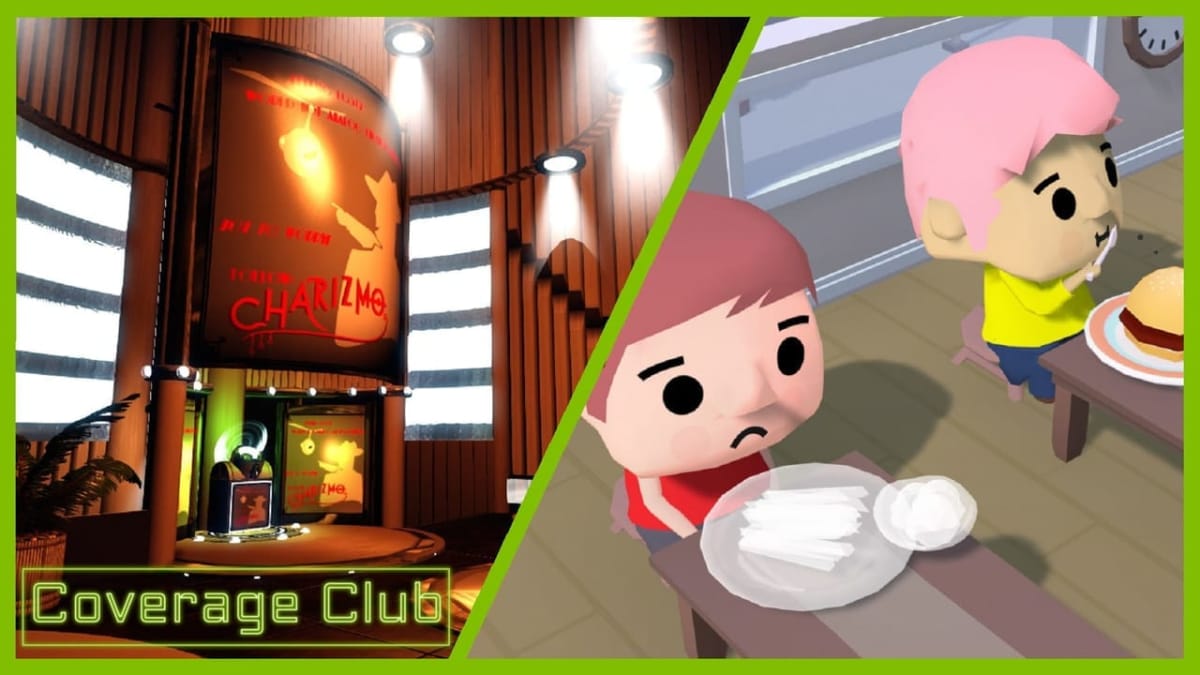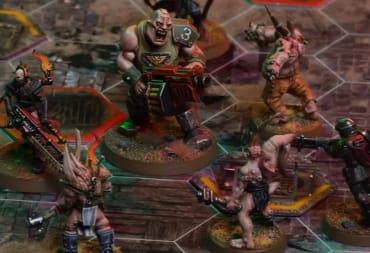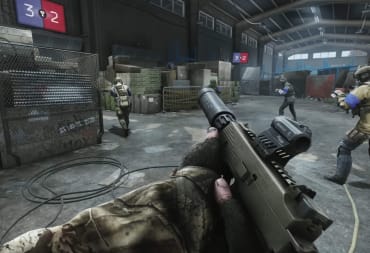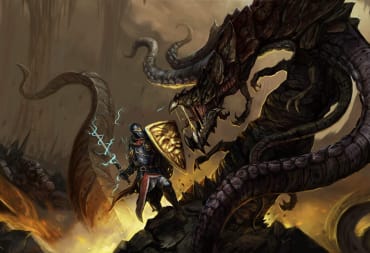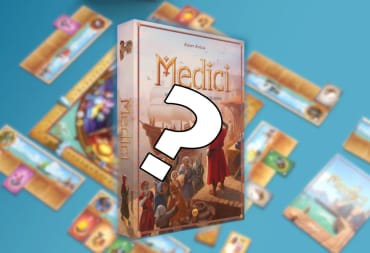Coverage Club is our weekly series of smaller impressions in the style of full reviews. Games can range from brand new titles hitting Early Access to older hidden gems that never got their due. No matter your preference, you’re sure to find something off the beaten path here.
Diner Bros.
Covered by Robert N. Adams
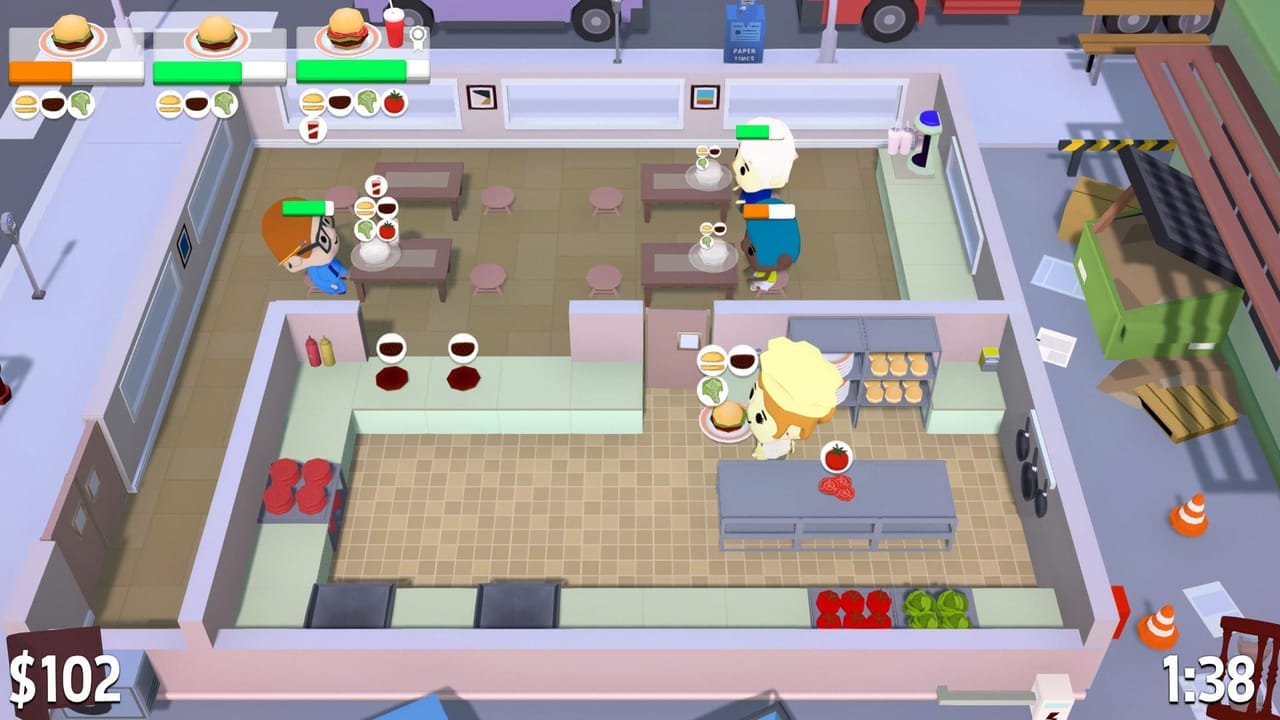
I can't cook for the life of me, but I sure do enjoy cooking in games. Whether it's a mini-game or a fully-fledged title like Cook, Serve, Delicious!, I just have a boatload of fun putting together delicious food. That made me quite interested in checking out Diner Bros.
Gamers interested in this space are going to notice an immediate visual and gameplay similarity to Overcooked. That's certainly understandable; Diner Bros has many of the same gameplay elements as Overcooked. You'll have to grab raw ingredients from a bin, cook and/or prepare them. Then, you'll plop the lot of them down on a plate to serve to your customers. The similarities end there. While Overcooked is more about performing the culinary arts in wacky levels, Diner Bros is a good bit more grounded as you're managing a restaurant with all that entails.
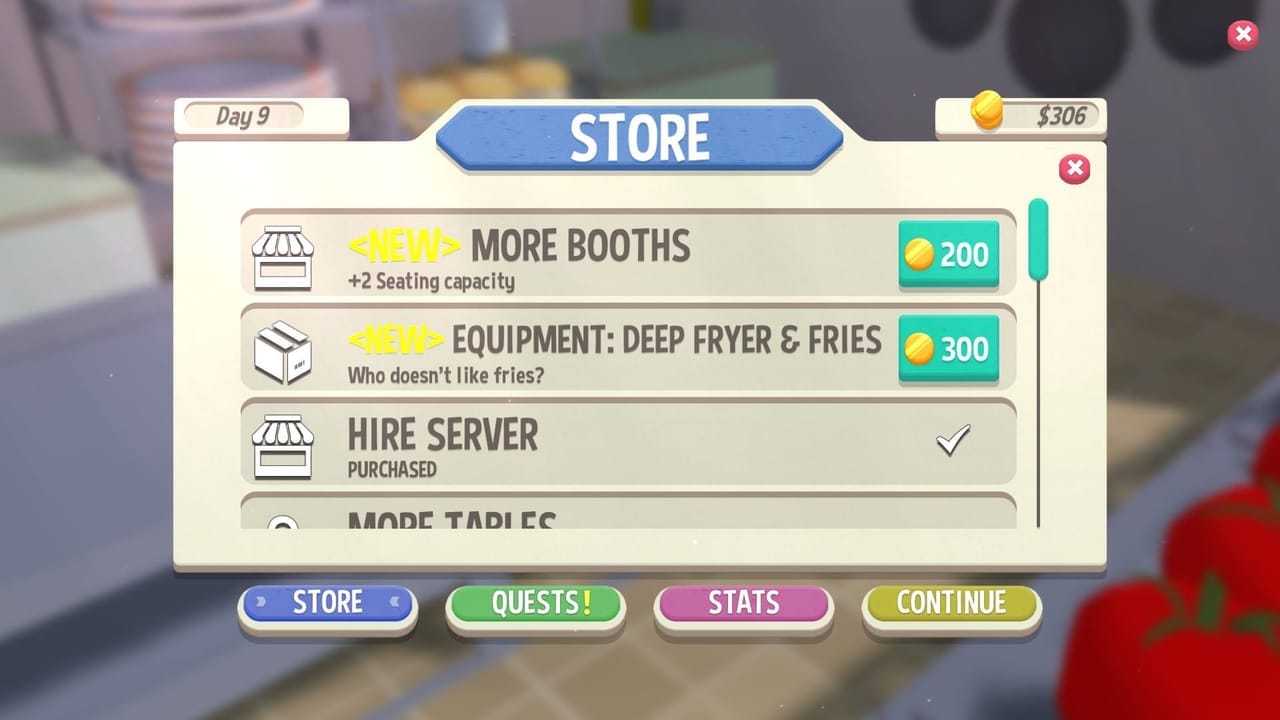
You won't just be cooking up food - you'll have to serve it to your customers, too. A multiplayer game would likely involve at least one person focusing on delivering food and bussing tables. Single player can make it a bit more difficult to do all of this yourself. The game handily provides you with an AI server to deliver delicious dishes to your customers so you can focus on staying in the kitchen. As the campaign progresses, you can unlock new foods, upgrade your restaurant, and serve all sorts of different customers, each with their own unique challenges.
I only played the single-player campaign, so I can't really comment too much on how multiplayer might work out. However, I think my experience can give me some insights. Collisions with customers is a very real challenge; I can't count the number of times I've just barely missed serving that last dish because an arriving or departing patron was in my way. The AI does a decent job in serving up plates to the correct people. However, it doesn't seem to prioritize the customers who've been waiting for the longest. There's also the issue where the AI isn't able to interact with the ice cream station outside of the kitchen, meaning that you'll have to step out and likely serve up the dishes on your own since it's a bit out of the way.
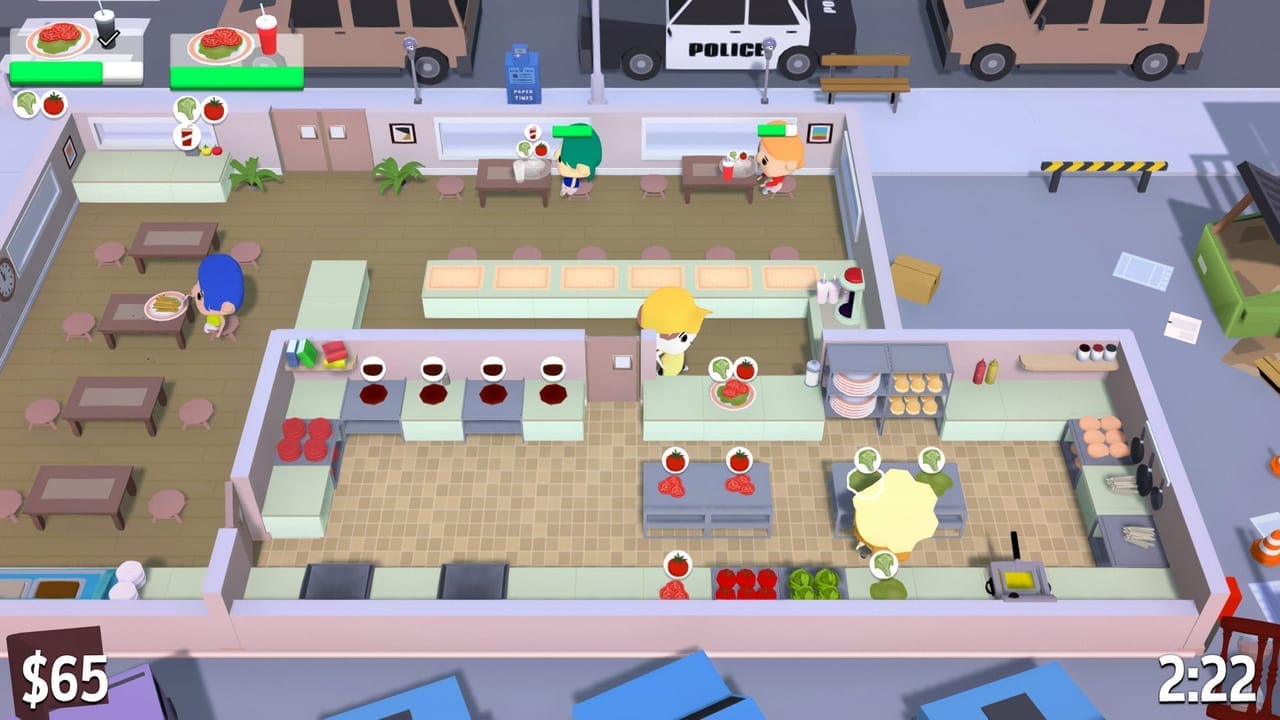
Thankfully, the game's cooking mechanic works wonderfully. I often begin my day by prepping some ingredients in advance and combining them as needed. As time goes on, I'll continue with the prep to replace what I've used so I can be certain to have enough of everything to go around. As the clock winds down, I'll focus less on preparation and more on serving the remaining customers. I hope to heck that I won't have to do additional prep work for some kind of last-minute rush. While you can plan ahead, certain customers like the Construction Worker will have special requirements such as immediately requesting an additional meal to make them happy. A battle plan rarely survives contact with the enemy, as they say.
Diner Bros was a fun little game to play in a single-player environment. I'm not sure if it will have the same staying power as Overcooked, but it has an adorable art style and it does a lot of things right. It may very well be worth checking out.
Diner Bros was covered on PC via Steam with a copy provided by the developer.
Door to Door
Covered by Samuel Guglielmo
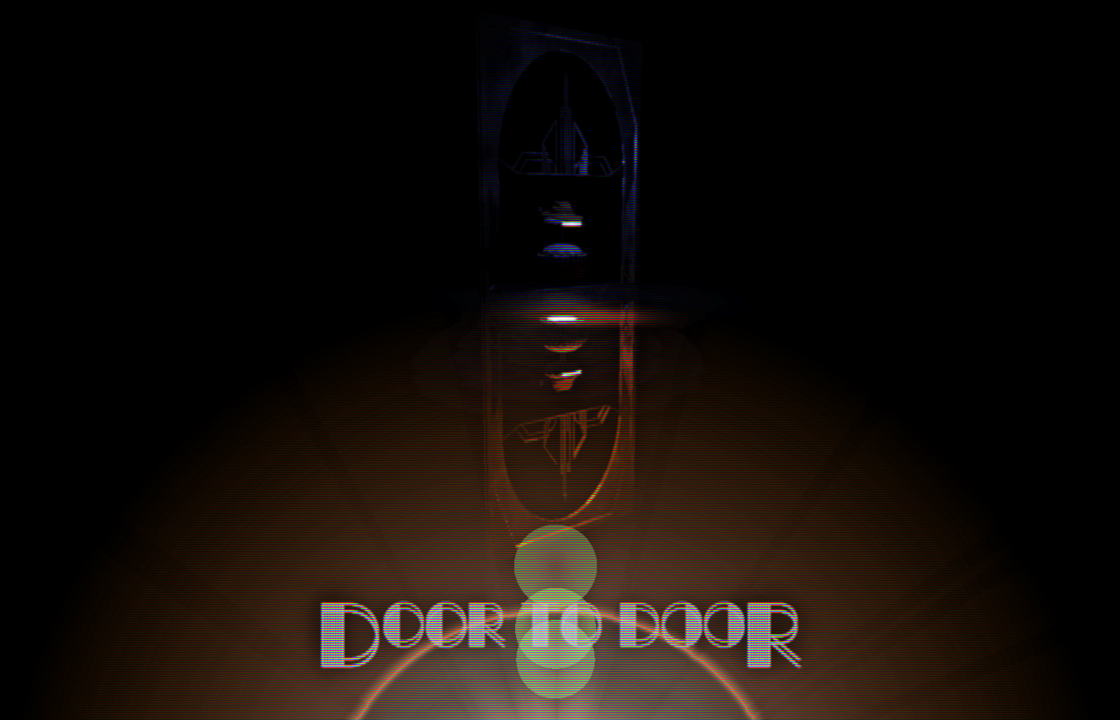
While it left me stumped several times, I had a good time with L.A. Noire. The open world detective game served as a great little experiment in both open-world adventure games and making the detective dream come true. In a way, Door to Door reminds me a lot of L.A. Noire. It's an open world detective game, albeit one with a heavy sci-fi slant rather than mid-1900's. Is that enough to make it worth looking at, or should you just slam the door in its face?
You play as Soloman Bixby, an investigator who works for the Ministry of Cleaning on the Lounge floor of a massive sprawling city. This is deep into the future and Bixby, along with everyone else, are robots. In front of him are ten unconnected cases, each one serving as a standalone episode of Bixby's life. One case has him tracking down a murderer who leaves pictures of dogs wearing shoes behind as his calling card, while another requires him to find and stop a doctor who's building a machine that will implant conspiracies into the heads of random citizens.
The first problem comes about when you select what case you want. The game's ten cases break down into two drawers. The first one has cases that require you to explore the open world, solving puzzles so you can figure out where to go. While that's a great idea, there's absolutely no effort made to ease you into or assist you in learning about the world of Door to Door. The very first case of the game is marked as an introductory case, but it does an absolutely terrible job at introductions. You're told to visit specific places or characters without half a clue where to go. It just doesn't lead to much fun, just wandering around and hoping you stumble upon the next important area.
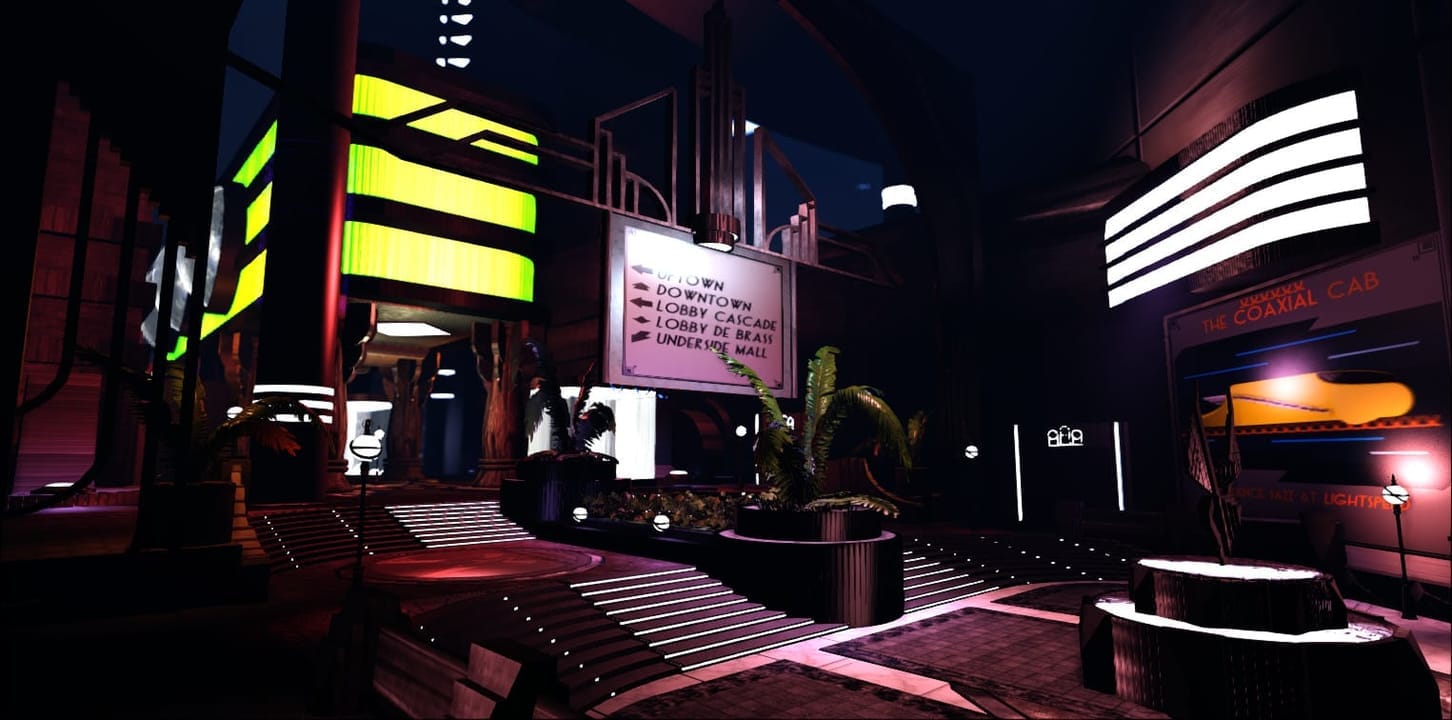
I was beginning to hate Door to Door when I decided to give the second drawer a chance. These cases are much more like narrative adventures. You'll be led to a specific point in the open world where you'll then be brought into a closed off segment used only for that case. These are much more like narrative games. You'll advance along a mostly linear path, listening to story bits and solving some extremely simple puzzles. This made Door to Door a much more enjoyable game, playing up to its strengths much better.
These strengths come from strong art design. The mysterious city the game takes place in is easy on the eyes. It's just fun to explore and there are great views to take in everywhere. I was constantly impressed with just how good the game managed to look and despite my frustration at being lost again at least enjoyed having a look around. There's also a good soundtrack adding to this, with some subtle synths adding in moody tones. However, the game's voice acting leaves much to be desired, with most of the cast sounding either confused or like they're mumbling their lines into low-quality microphones.
I find it hard to hate Door to Door in the same way I find it hard to hate a lot of indie games I didn't enjoy playing. No, it's not particularly great, or even good at times. However, it is an interesting experiment that really does seem to be trying to recapture that detective feel. Navigating the world could be easier, but those that want to learn every crook and cranny could find something unique here.
Door to Door was covered on PC via Steam using a copy purchased by the player.
What do you think of this week’s Coverage Club selections? Do you know of an overlooked game that deserves another chance? Let us know in the comments below, and don’t forget to follow our Steam Curator to keep up to date with all our reviews.
Have a tip, or want to point out something we missed? Leave a Comment or e-mail us at tips@techraptor.net
